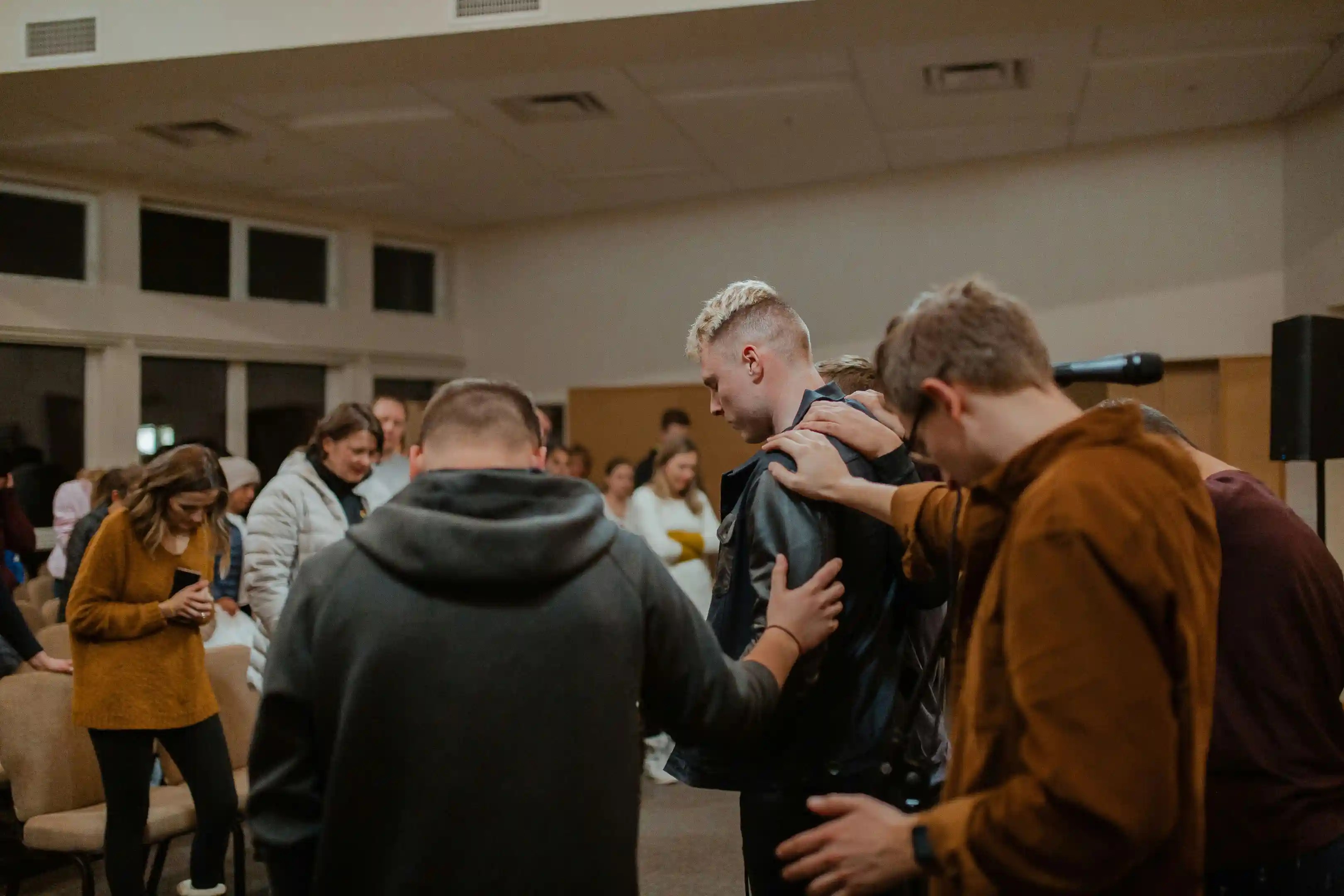Why the Church in America Still Needs to Engage in Global Missions

On one occasion when I was at Second Presbyterian Church, I got a phone call from a man new to Memphis. He was a business executive who had started attending the church. He said, “I’ve been hanging around your church and appreciate your belief in the gospel and Bible teaching and the fellowship. You’re very committed to the city of Memphis and I’ve been here long enough to know the city has some major problems. I appreciate the fact that the church is actively sacrificially engaged in the solution to those problems.”
Then he said, “But I’ve got a question.”
‘What’s that?” I said.

Why do you talk about world mission when you’ve got so many problems in Memphis? What would make you want to take resources out of Second Presbyterian Church and ship them overseas?”
“Why do you talk about world mission when you’ve got so many problems in Memphis? What would make you want to take resources out of Second Presbyterian Church and ship them overseas?”
I said, “You’re asking a really good question, and if you don’t mind I’d love for you to come to the office next time and we can sit down and chat.”
About two weeks later, we sat down in my office and I explained the full scope of why we do what we do. I told him there are three compelling motives why we at Second Presbyterian Church, and why I think churches around the United States, should still support global missions.
The Humanitarian Motive: Material Poverty
When you look at both the material and spiritual poverty in the world and then you look at the unbelievable resources in the Western Church, the contrast is very arresting and convicting. It suggests that something be done.
Of the 8.2 billion people in the world, 700 million live in extreme poverty which means they live on less than $2.15 a day. Most of those are women and children. In fact, one out of six children in the world are living in that condition.
Two-thirds of the 700 million people living in extreme poverty are in sub-Saharan Africa. I remember being in a village in Mozambique and the people there didn’t have potable water. There was a pond outside the village where they got their water. I went to that pond and it was just filthy. I asked how much it would cost to drill a well in the village. The answer was $10,000. I’m thinking, “For $10,000 you can have a well for about 3,000 people!”

Forty-four percent of the world lives on less than $6.85 per day, which is strictly speaking the international poverty level.
Forty-four percent of the world lives on less than $6.85 per day, which is strictly speaking the international poverty level (that’s extreme poverty in the USA but internationally that’s considered poverty). You’re almost looking at half the world’s population living in poverty. Even living in Memphis you wouldn’t know it, but it’s a very, very poor world that we live in. At the same time we’re living in the wealthiest nation in the history of the world in terms of average income and assets. It’s a crisis.
The Humanitarian Motive: Spiritual Poverty
But there’s something even more critical to address than the material poverty and that’s the world’s spiritual poverty.
Let’s break this down. Today there are 8.2 billion people in the world. Thirty-two percent of those profess to be Christians which is 2.6 billion people claiming to know Christ. Most evangelical demographers tell us that only one-third of those are genuinely converted. There is a lot of nominalism and some branches of Christianity that have obscured the gospel to the point that people are not soundly converted. If you look at the numbers of people who we believe are genuinely converted in the world, it’s 10% of 8.2 billion, which is 820 million evangelical converted people.
Then you have another 1.8 billion people who profess Christ but don’t know Him and they need missionaries and they need ministry. But if 2.6 billion people profess Christ, that means 5.6 billion are not professing Christ and are clearly lost. Among those 5.6 billion people there are two fundamental groups. One is the group who has access to the gospel. There’s somebody within their ethno-linguistic group and within their region where they could possibly hear the gospel. This group is about 3.3 billion people. That leaves 2.3 billion people who have no access to the gospel.
That’s a huge problem.

In the world, there are about 17,400 ethnolinguistic groups. They have their own language and their own culture and we’ve made tremendous progress in our global evangelization over the past decades to reach many of those people groups. But there are still 7,400 of them who have no Christian witness.
In the world, there are about 17,400 ethnolinguistic groups. They have their own language and their own culture and we’ve made tremendous progress in our global evangelization over the past decades to reach many of those people groups. But there are still 7,400 of them who have no Christian witness.
If you ever looked at a map at the poorest countries in the world and then you overlaid on that map a grid that showed the least evangelized countries in the world, you’ll see a 95% overlap. It’s amazing how the gospel changes the structures of human life in every way. So if you care about the poor, you’ve got to care about evangelism because the two go together. The tragedy is that studies show that Christians give 2.5% of their income to charitable causes, but only 2% of that 2.5% goes to international causes. So among Christians, we are exporting a mere 0.05% of our income to help.
It reminds me of when I became a Christian in New England at the age of 25. The pastor had three children and his youngest was a Down syndrome child named Eugene. Gene loved to be the offering collector. One Sunday, during the offering at our evening service, I was watching Eugene. He came to Dr. Ed Tinney and his wife, Mary, who were pillars in the church, and handed them the plate. Having given in the morning, they just handed it back. Eugene looked at it and he went and handed it back to Dr. Tinney. Since that night, I’ve just had that picture in my mind of Jesus handing the offering plate back and saying, “Let’s get serious with the business that’s in front of us.”
So that’s reason number one. It is not the most important one, but it is still a significant reason to participate in global missions. There is a humanitarian motivation because the reality is that we have a poor world and we have a materially and spiritually wealthy Western church. The world knows we are wealthy, and they need us.
The Pastoral Motive
The second reason to engage in international mission is because of the blessing that comes to a local church and the blessing that comes to the individual Christian when you do.
When I attended Gordon Conwell Theological Seminary, my missions professor, Dr. J. Christy Wilson, invited our seminary president, Dr. Harold John Ockenga, to give a sermon to the class titled “How to Guarantee God’s Blessing on the Local Church.” The point of his message was that churches should wholeheartedly engage in global missions because God won’t let a church like that shrink or go away.

My observation is that when your church communicates the gospel—which by its very nature is a proclamation—and that proclamation goes to all the world because your congregation gives their resources and sends their people, it does something special to that local church. They grow.
Now, that may be bad theology—it’s not a promise in the Bible. But my observation is that when your church communicates the gospel—which by its very nature is a proclamation—and that proclamation goes to all the world because your congregation gives their resources and sends their people, it does something special to that local church. They grow. They understand how important the mission is. Often when you leave off the external mission of the church, particularly in those areas that are unseen and, therefore, unthought of, you diminish the church’s understanding of the gospel itself. In my experience, local churches are greatly blessed when they become a blessing to people around the world.
In terms of individuals, I just know people who have grown up and matured in their faith as they participate in global missions. Haven’t you seen it? Haven’t you seen that in your own life? As you’ve engaged with the huge needs in other places and you’ve become more global in your thinking, hasn’t your whole Christian life been elevated?
When I was at Lookout Mountain Presbyterian, one of our world missions chairmen was Dr. Marion Barnes. At the time, Dr. Barnes was the president of Covenant College, had a Ph.D. in chemistry, and was a ruling elder on our session. One Sunday evening service during the time we were sharing prayer requests, Dr. Barnes got up and said, “I want you younger people to pray for me. I’m going to meet with three of my buddies and we’re going to talk about how we want to spend the rest of our lives.” The teenagers started to snicker thinking that at 81 years old the man didn’t have much life left.
Dr. Barnes came back the next Sunday night and said, “My friends and I met. Here’s what we decided. We’ll go anywhere at any time to do anything at any cost to promote the kingdom of God.” I remember praying as a young man, “Lord, make me old like that!” There’s a life that was richly blessed because he knew that the words of the Lord Jesus were true. It’s more blessed to give than to receive.
I remember one year we had faith promise pledges and Dr. Barnes was not a wealthy man, so it made a lot of sense to him. He submitted a faith promise pledge. About three weeks later in the Sunday evening service, he got up and said, “I thought I submitted a generous faith promise plan, but I had this windfall gift that came in and I have to submit another one.” That happened to him three times that year. I’m just thinking, “There’s a blessed man, and if I could convince more people to be like that, they’ll all be blessed.”
There is a pastoral motive. I know that God blesses those who engage His mission, and I want you to be blessed.
The Theological Motive
But there’s a third motive and it’s the most important one. It’s a theological motive and it has to do with the very character of God. In 2 Corinthians 5:20 Paul says, “Therefore, we are ambassadors for Christ, God making His appeal through us. We implore you on behalf of Christ, be reconciled to God.”

Paul says, we are ambassadors, and we know that our ministry is an apostolic mission. Whatever was given to the apostles is given to us, and what they were given, of course, was the ministry of Jesus. We’re all involved in it. We’re the ambassadors.
Paul says, we are ambassadors, and we know that our ministry is an apostolic mission. Whatever was given to the apostles is given to us, and what they were given, of course, was the ministry of Jesus. We’re all involved in it. We’re the ambassadors.
If you back up to the previous verses, you will see the motives for Paul’s ambassadorial role and for your role. Verse 11 says, “Therefore, knowing the fear of the Lord, we persuade others ….” Paul is saying, “You want to know why I’m doing what I’m doing? It’s because I fear God.”
It reminds me of Isaiah 6. Isaiah’s ministry was to preach until the Israelites hardened their hearts so much they wouldn’t listen anymore. How would you like a missionary task like that? It’s hard enough when you have prospects of conversion. What would make a man embark in this futile mission? Seeing God face to face. Isaiah was an eyewitness to God’s glory and holiness. His response was the fear of the Lord. He feared God and was willing to do whatever God asked.
Paul’s experience is similar. He was also awestruck with a vision of the Lord. In 2 Corinthians 5, Paul is basically saying, “I’m in His presence. I’ve seen him for a flicker of a moment until I went blind. And it’s out of the fear of the Lord that I want to persuade the world to believe in Jesus Christ.”
Our response should be likewise. We should continually be awestruck by Him. Anything He says we respond, “Yes sir!” because we’re in awe of who He is.
Secondly, in verse 14 Paul says, “For the love of Christ controls us because we have concluded that one has died for all, therefore all have died.”
The second motive for Paul’s ambassadorial role is that he believes in the cross and stands in the love of Christ. We’ve received something that is so precious, it’s unspeakably glorious, and that is what moves us. Your sins killed the son of God, and He has come to you and not only forgiven you, but also adopted you as a child. No one could have made up this story. It’s beyond the human imagination that such a thing could happen.
But it’s true and when you and I are struck with the truth of it—when we’ve grasped it and we’ve allowed ourselves to be loved like this—there’s one thing to do and that is to ask the Lord Jesus what He would do with us. And when you want to know what He would do with you, then just listen to Him after His resurrection. He tells us to go into all the world and proclaim the good news. That’s why we engage in global missions—it’s an inevitable reaction to the gospel.
This article was condensed and adapted from a talk given by Sandy Willson at MTW’s Ambassadors Weekend, March 2025.








